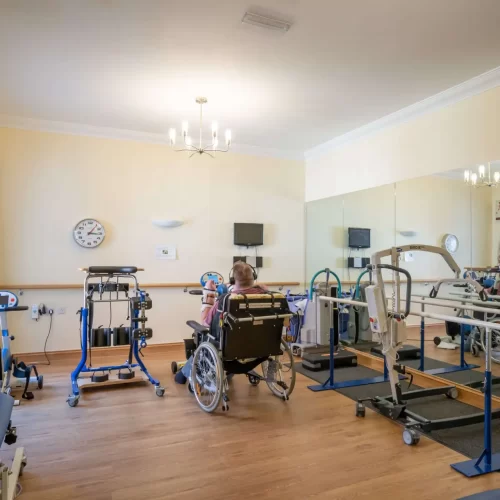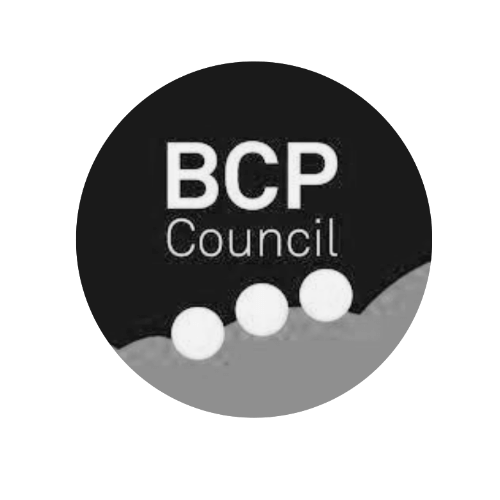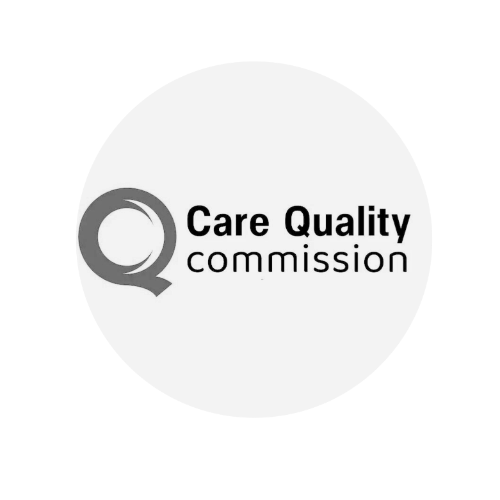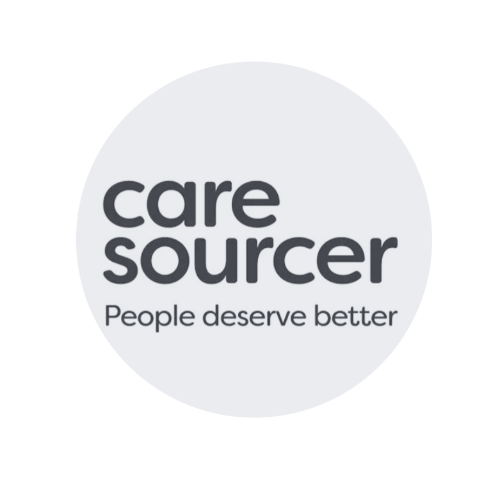Types of Neurological Disorders in Adults

Approximately 1 in 6 people in the UK is living with one or more neurological conditions; this equates to about 14.7 million people. This figure covers a range of conditions, as there are many different neurological conditions.
The one thing that unites these conditions, aside from the fact they all impact the brain and/or central nervous system, is that they all impact independent living and daily routines.
At LuxuryCare, we offer dedicated neurological care for those with any type of neurological condition at Branksome Park. This care home in Poole is a dedicated neurological centre, that provides specialist nursing care for those with complex needs. While there are so many different types of neurological conditions, there are several common ones that we see. In this blog, we explain what these common conditions are, how you can identify them and what care these conditions require.
Stroke
There are two types of strokes, both of which are fairly common in adults in the UK.
The first type is an ischemic stroke, which is when the blood flow to the brain is blocked or reduced, which prevents the brain tissue from getting oxygen.
The second type of stroke is a hemorrhagic stroke, which is where a blood vessel leaks or bursts, causing a bleed on the brain. The blood puts extra pressure on the brain cells, which damages them.
Fast identification and response are key to treating and recovering from a stroke.
If you are a resident of the UK, you will likely have seen adverts to promote stroke awareness. These adverts use the acronym FAST to describe the main symptoms of this type of neurological condition.
F – Face: One side of their face drooping?
A – Arms: Can they raise their arms?
S – Speech: Are they slurring when they speak?
T – Time: Act fast by calling 999.
Strokes can be difficult to treat, especially if it is a hemorrhagic bleed. In this case, there isn’t a treatment to prevent the bleeding. Rather, there is rehabilitation to recover from the impact of it.
However, ischemic stroke can be treated with tissue plasminogen activator (tPA), which will break up the blood clot so the blood can flow freely through the brain again. For it to work, it must be given within three hours of the stroke starting.
Again, if the drug isn’t administered in this timeframe, the treatment isn’t preventative but becomes reactive to the lasting damage that may have been caused.
These treatments might include physio or occupational therapy, as well as speech and language therapy.
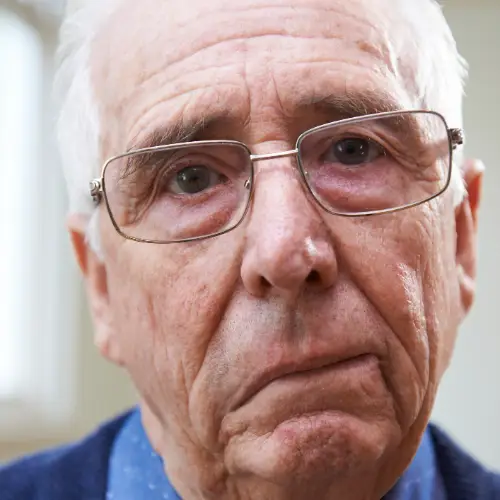

Parkinson’s Disease
Parkinson’s disease is caused by a drop in dopamine-producing cells in the brain. These are the cells that control movement, which is why one of the main symptoms of this neurological condition is shaking.
The most common symptoms of this disease include:
- Tremor
- Muscle stiffness
- Slowness of movement
- Chronic pain
- Sleep disturbance
- Constipation
- Gut issues
- Memory problems
- Anxiety and depression
There is no cure for Parkinson’s disease, meaning that someone with a diagnosis will receive palliative care to ensure they are comfortable and remain as independent as possible.
This treatment could include:
- Therapies such as physiotherapy or speech therapy
- Medication for pain management and to help produce dopamine
Dementia
The term dementia is an umbrella phrase that covers a number of progressive conditions that affect memory, such as Alzheimer’s, Frontal-temporal dementia, Lewy Body dementia and Vascular dementia.
Each one of these neurological diseases has slightly different symptoms. However, the common sign is a loss of cognitive function. That means people with these conditions lose the ability to think, communicate and remember.
Like Parkinson’s Disease, there is no cure for these diseases, so after receiving a diagnosis, a person will receive a palliative care plan to keep them comfortable and independent and try and slow the deterioration down.
Treatments might include:
- Therapies such as physiotherapy and speech and language therapy
- Reminiscence therapy, gardening therapy and music therapy
- Pain management medication
- Drugs to manage other symptoms

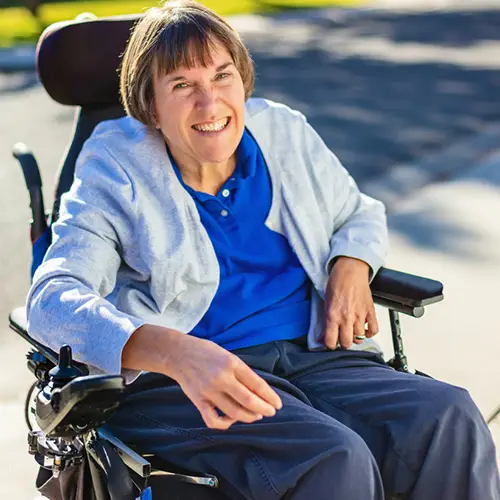
Multiple Sclerosis
Multiple Sclerosis (MS) is a disorder that impacts the brain and spinal cord, leading to a variety of symptoms, such as issues with vision, sensation, balance, or arm or leg movement.
In MS, myelin, the covering that protects nerve fibres, is attacked by the immune system, impairing brain-to-body communication. This may eventually result in irreversible harm or degeneration of the nerve fibres.
People will experience the symptoms in different ways, but the main signs include:
- Fatigue
- Difficulty walking
- Vision problems, such as blurred vision
- Problems controlling the bladder
- Numbness or tingling in different parts of the body
- Muscle stiffness and spasms
- Problems with balance and coordination
- Problems with thinking, learning and planning
There is no cure for MS, so people are treated for their symptoms, working to keep them mobile, independent and comfortable for as long as possible while also helping them recover from attacks and reducing the frequency of relapse.
- Medication can be prescribed to reduce nerve inflammation and to help with other symptoms of the condition
- Physiotherapy to treat muscle spasms and stiffness
- Occupational therapy to help reduce the impact of muscle weakness
- Speech and Language therapy to help with eating
Neurological Care at LuxuryCare
The above are just four of the most common neurological conditions in our Poole and Bournemouth care homes and are some of the most well-known in the UK.
We have a dedicated care facility for these and other neurological conditions, where our staff undertake particular training to provide complex medical and personal care.
At LuxuryCare, we are passionate about helping our residents with a neurological condition maintain a quality of life that is fulfilling and rewarding. We aim to encourage everyone living with us to stay independent as much as possible, allowing them to choose which activities they participate in and what and where they eat and giving them the opportunity to have a say in their bespoke care plans.
A resident’s condition shouldn’t stop them from living their life to the fullest, and with our extensive lifestyle and medical facilities, we hope we enable this.
If you want to learn more about our neurological care, visit our specialist care home, Branksome Park, to chat with our staff and some residents. Book a viewing today by calling us on 01202 013319 or complete our online contact form to request a callback.
